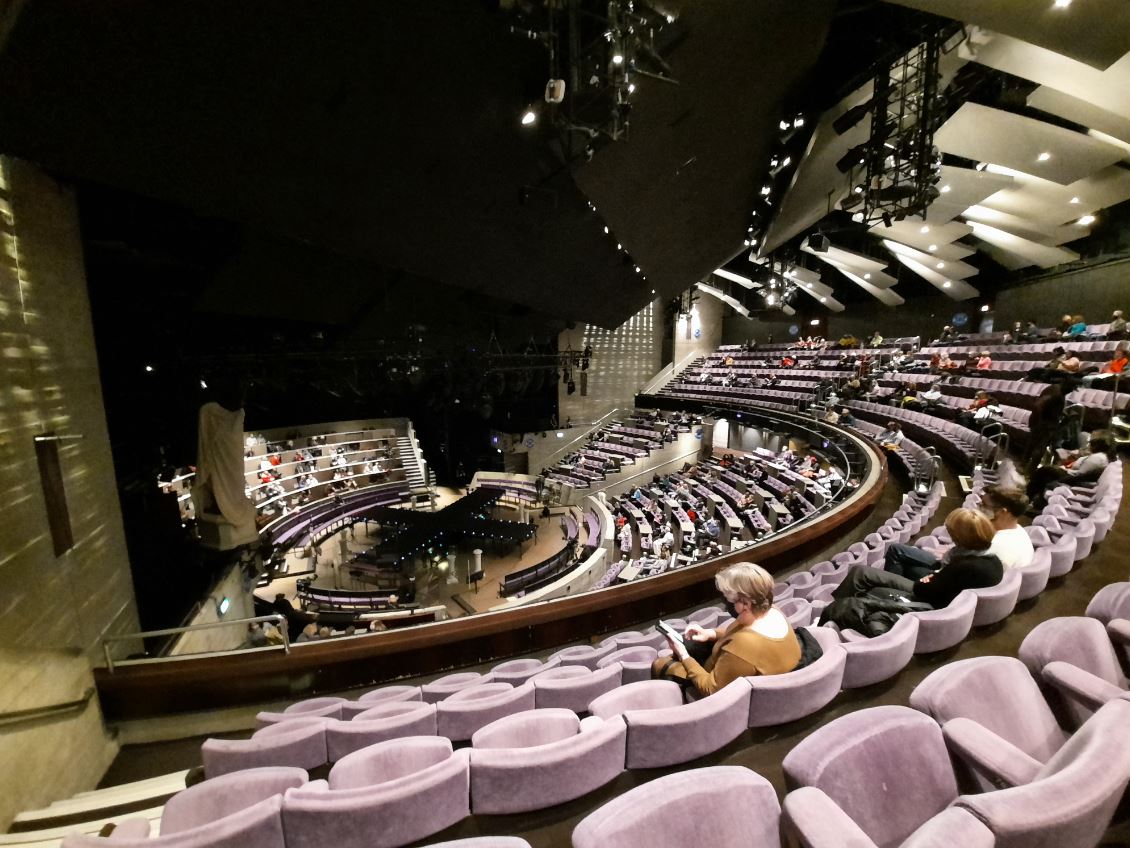The Covid Diaries 40: National Theatre, Death of England: Delroy
Review of Death of England: Delroy at the National Theatre. In which I didn’t expect to be there on opening night, which was also closing night.
Opening Night/Closing Night
By sheer luck, I had tickets to see Death of England: Delroy on Wednesday 4 November. This was one day before the UK entered its second lockdown. It would have been the press night and last day before the official opening on 5 November, but ended up also being closing night.
So despite a number of other cancellation emails for things I had booked, I feel very fortunate to have been able to see this play on its opening/closing night. I also felt like an official reviewer seeing the same performance as all the professional critics. Although let’s not hold the Salterton Arts Review to the same standard, thank you! Thankfully the National Theatre acted fast to record the performance, so they can stream it at a later date and to a wider audience. This involved very quick thinking I’m sure to be able to arrange that.
A Not Quite Sequel Which Stands On Its Own Two Feet
Death of England: Delroy is the work of playwrights Clint Dyer and Roy Williams. It follows on from Death of England, another monologue performed at the National back in February and starring Rafe Spall. Death of England was set in 2018 and featured Spall’s character Michael trying to come to terms with the death of his father Alan, and railing at those around him including best friend Delroy.
Two years later, Death of England: Delroy sees the eponymous character working through the series of events that saw him wrongfully arrested as he was on the way to the birth of his first child. By the time of the action he is unemployed, at home with an ankle tag and some beers. He is estranged from his partner and child. He is angry at the systemic and individual racism that leaves him feeling like an outsider in his own country. It would actually be a good counterpoint to Nine Lives which I saw recently and which deals with similar issues from the point of view of a recent arrival.
Death of England: Delroy – Powerful, Urgent, Important
Balogun’s performance in the monologue is powerful and physical. The National have configured the Olivier Theatre in the round with a large, raised (St. George’s?) cross in the centre as a stage. Balogun makes full use of the space: sprawling out with a beer, leaping and running on cross-arms and stairs. At first very sparse, Delroy unearths a series of objects on stage which in part represent the barriers on his path to dealing with his identity as a Black British man and father on his own terms: institutional racism, the relationships in his life, his family and so on. It is his wrongful arrest and conviction which politicise Delroy and make him rethink what he has lived with and internalised in the past. He realises how this has impacted him even down to the power dynamics in his relationship with his partner Carly.
The pared back staging and urgent sound design contribute to the tension and energy of the performance. All combine to make Death of England: Delroy a timely and important work. At times I found it almost frenetic, but at the same time, with the challenges theatre and the arts have faced in 2020, passionate and political works are just what we need to be seeing from the viable and crucial theatre industry. Rufus Norris, National Theatre Artistic Director, gave the audience a pep talk to this effect before the performance began. This is not the first play whose opening night was also its closing. Like Delroy, however, the theatre, and hopefully the play, will overcome the challenges thrown at them and come back the stronger for it.
On its own merits: 4/5
Implementing Covid rules: 4.5/5
Death of England: Delroy‘s run has been cut short, but look out for streaming from National Theatre Live.
If you see this after your page is loaded completely, leafletJS files are missing.






2 thoughts on “The Covid Diaries 40: National Theatre, Death of England: Delroy”